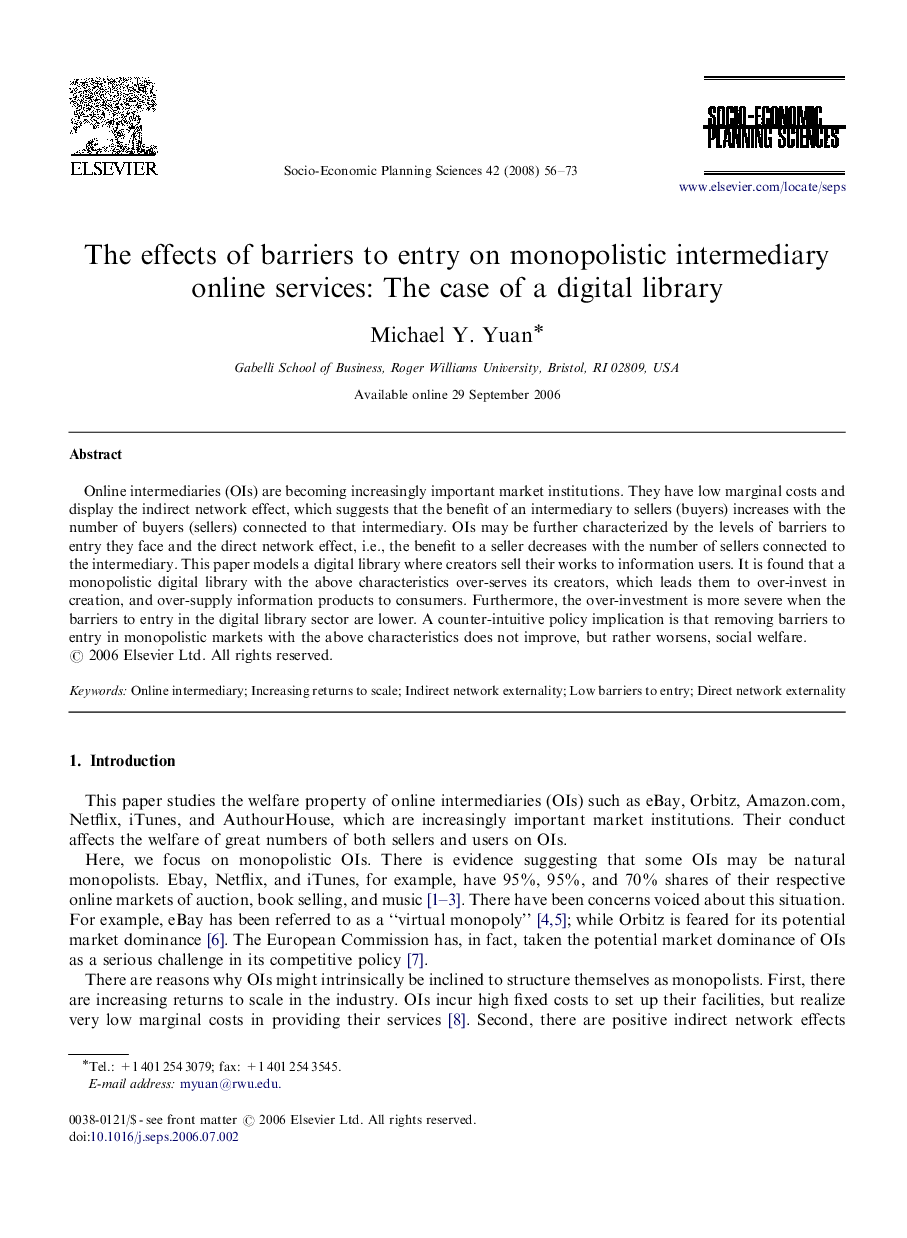| Article ID | Journal | Published Year | Pages | File Type |
|---|---|---|---|---|
| 987662 | Socio-Economic Planning Sciences | 2008 | 18 Pages |
Online intermediaries (OIs) are becoming increasingly important market institutions. They have low marginal costs and display the indirect network effect, which suggests that the benefit of an intermediary to sellers (buyers) increases with the number of buyers (sellers) connected to that intermediary. OIs may be further characterized by the levels of barriers to entry they face and the direct network effect, i.e., the benefit to a seller decreases with the number of sellers connected to the intermediary. This paper models a digital library where creators sell their works to information users. It is found that a monopolistic digital library with the above characteristics over-serves its creators, which leads them to over-invest in creation, and over-supply information products to consumers. Furthermore, the over-investment is more severe when the barriers to entry in the digital library sector are lower. A counter-intuitive policy implication is that removing barriers to entry in monopolistic markets with the above characteristics does not improve, but rather worsens, social welfare.
